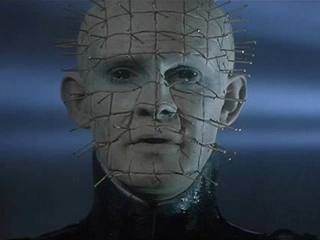
Since the dawn of human culture, a mostly silent debate has been occurring. It is one that transcends religion, cultural expectations, as well as political or geographical boundaries. You as the reader may have some idea as to what the topic might be, and I can assure you that some knew what to expect from this post just from reading the title. Either way, this post may at first seem out of place on my website, but I assure that as the subject matter unfolds, or more appropriately manifests, it will seem as right and familiar as a drinking buddy’s sofa bed.

The debate I refer to is that of the existence of the paranormal. This can be considered a somewhat broad and all-encompassing word as it can refer to anything that falls outside the boundaries of normal perception; this could be a spiritual abnormality, an extraterrestrial presence, a crypto-zoological encounter, or a simple glimpse into the world of extra-sensory perception. These topics are almost always laced in obscurity and veiled by a tarp stitched with the thread of cultural taboo. Academics are often shunned or ostracized if they acknowledge any of the aforementioned topics with anything more than a wry comment and a disbelieving smirk. Then of course there were the classical attacks on the paranormal by organized religions throughout history, including, but not limited to the Spanish Inquisition, and the Salem Witch Trials.

Now with the broad strokes taken care of, we can take a look at the esoteric meat and potatoes of the subject. Most people have had (or think that they have had) a paranormal experience or at least know someone who has. A 2005 Gallup poll showed that 74% of Americans believe in at least one aspect of the paranormal (which Gallup broke up into the following categories: Extrasensory Perception, Demonic Possession, Psychic Healing, Telepathy, Haunted Houses, Extra-Terrestrial Visitation, Clairvoyance, Astrology, Ghosts, Reincarnation, Post-Mortem Communication, Witches, and Spiritual Channeling). Notice that the pollers did not even mention the existence of crypto-zoological entities like Bigfoot, the Jersey Devil, and Moth Man; I would think that this would push the believer percentage up to at least 80%. According to Americans, the most believable paranormal categories were ESP (41%) and that houses can be haunted (37%).

With numbers and percentages like these, the reason that books, movies, and other entertainment mediums often find a reasonable level of success in the horror/sci-fi genres becomes self-evident. People are intrigued by the thought of the “beyond” and many find a sense of comfort and even quasi-immortality in the idea of some sort of existence beyond the grave, whether it be spiritual or esoteric. I would postulate that many of the writers who choose to express themselves in the supernatural genre have likely had some type of paranormal experience of their own. This makes sense if you think about it; most drug and alcohol counsellors have had experience with substance abuse, most psychologists have experienced some level of psychosis (or have witnessed it in someone close to them), and every exterminator has probably seen Starship Troopers too many times.

Stephen King has sold an estimated 350 million copies of his accumulated and extensive creative works. Nearly all of King’s books at least skirt upon paranormal topics, and some of them would be more accurately described as driving through said topics with a bull dozer constructed with words and driven by fear. King has discussed paranormal topics in countless interviews over the years, and is a believer in ESP (like 41% of America!) and has alluded to some ghostly encounters at the Stanley Hotel, which became the basis for one of his more popular novels, The Shining.
Clive Barker, the spinner of such twisted tales as the film Hellraiser and the novel, Imajica, has never publicly alluded to any personal paranormal experiences. However, when Barker was a young boy, he witnessed the unfortunate accidental death of a prominent sky diver in a grandiose Liverpool airshow. The experience, although not paranormal, may have set the tone for many of his macabre tales. Understandably so, considering how a young person’s mind often times tries to rationalize death as a point of spiritual transference as opposed to one of finality.

Dean Koontz is another well-known horror writer, who finds himself in the company of the aforementioned authors, but is included in this short list with a slightly different subtext. A quote from Konntz’s novel, Velocity, is a very good example of how the author may feel on the subject of the paranormal; “Houses are not haunted. We are haunted, and regardless of the architecture with which we surround ourselves, our ghosts stay with us until we ourselves are ghosts.” The author is a proponent of spirituality, but in a way that may not be expected by some of his readers; Koontz is a devout Catholic and in reality his personal views on the paranormal are more likely to resemble those of a clergyman than a carver of gory and suspenseful stories. Koontz’s background with his sociopath father and the subsequent attempts that the man had made on his life also were likely contributors to the author’s paranormal lexicon.

The long and short of it: people have different views on the paranormal. Some embrace it fully and like to imagine themselves painted into the pages of some illustrious and terrible tale of demons or zombies or things with long teeth and short tempers. Some see the hope of otherworldly existences as a comfort to their own mortality; while others like to listen, let their imaginations run rampant, and fall asleep with one eye opened just wide enough to let their night lights give them comfort.
To me the question of whether or not the paranormal is real is irrelevant. It is all based on personal and cultural perception, and whether we like it or not, the dark and terrible is here to stay. And it is a part of us.
Until next time horror fans!